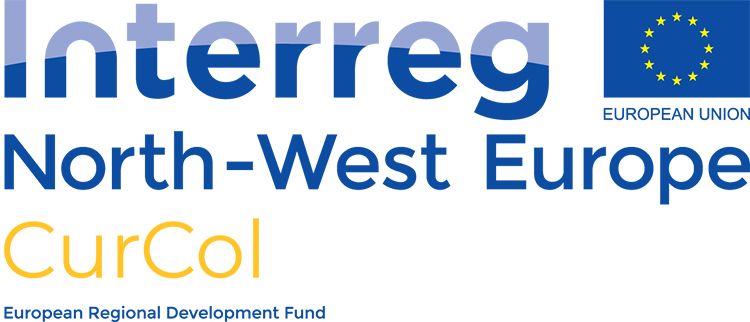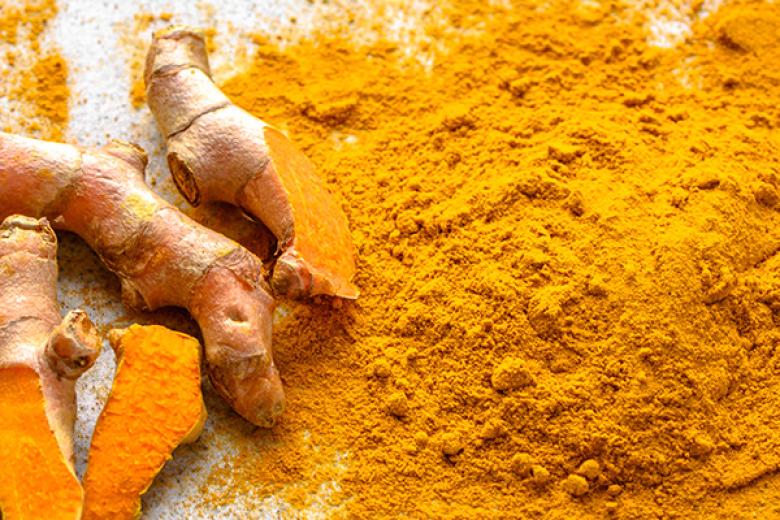CurCol

The Interreg NWE project CurCol aims to demonstrate economic potential for the production chains from regionally produced plants to colourants in packaging. The project assesses three pilots for colourant production and application in plastic and paper packaging, by defining barriers, business cases and action plans. The focus of CurCol is on the yellow natural colourant Kurkumine.
Europe absorbed approximately 87 million tons of packaging waste per year. (Industrial) composting is often used for biobased packaging materials, such as PLA. Non-biodegradable synthetic colourants are released during composting. Many contain toxic components that accumulate in the environment. When recycling paper, these colourants also end up in wastewater. We can prevent this by using natural colours. Project partners from Ireland, Germany, Belgium and the Netherlands join the CurCol project to reach this.
Transition to curcumine colours
The few available biodegradable colourants do not meet the quality criteria, so that the packaging industry cannot use them now as an alternative to fossil-based substances. Curcumine, a yellow natural colorant, is already used in food and pharmaceuticals. Wide application is hampered, mainly due to poor UV stability. Recent research shows that it is possible to improve UV stability and generate other colors like red and blue. CurCol continues this research.
Long term
The aim of the project is:
- Valorisation of biobased dyes in biodegradable packaging
- Introduction of a valuable crop in the greenhouse industry
- Identification of new supply chains
- Signaling growth in jobs and economic activity
On the long term new knowledge and transnational partnerships support the transition to a circular and biobased economy. CurCol focuses on packaging, but application in, for example, textiles and cosmetics is also possible.

